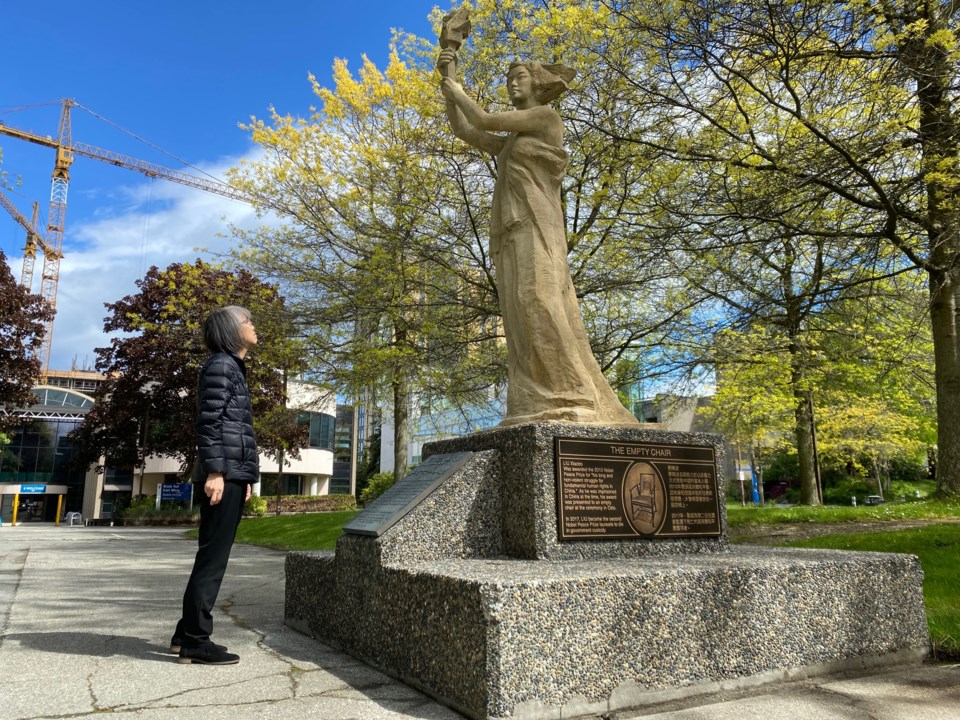Pro-democracy groups are lobbying the federal government to expand so-called “lifeboat” immigration provisions for Hong Kong residents while simultaneously calling on Canada to contract economic and diplomatic ties to the city now increasingly under the direction of the Chinese Communist Party (CCP).
Mabel Tung, chair of Vancouver Society in Support of Democratic Movement, visited Ottawa last week to lobby bureaucrats and members of Parliament with Vancouver Hong Kong Forum Society, Canada-Hong Kong Link as well as Saskatchewan Stands with Hong Kong.
“The delegation expressed deep concerns about the ongoing suppression of freedom and the erosion of the independent judicial system in Hong Kong,” stated Tung in a joint news release.
Of particular concern is Hong Kong’s national security law, which has put a chill on free speech and assembly, as those who question or protest the CCP can be arrested and jailed for subversion.
On Feb. 6, a national security trial against the “Hong Kong 47,” a group of pro-democracy activists, journalists and former lawmakers, began.
The trial best exemplifies the current “police state” that Hong Kong has become, said Tung.
“In court, common practices have become arbitrary denial of bail, politically designated judges, lack of a jury, and restricted right to legal representation,” wrote Tung.
The groups have asked the Canadian government to further extend special immigration provisions for Hong Kong residents seeking open work permits.
Specifically, they want a further extension of this “lifeboat program” beyond 2026, when it is presently scheduled to end. The request comes after Immigration, Refugees and Citizenship Canada (IRCC) recently extended the application deadline of open work permits to February 2025.
Another request is to reduce other program barriers; that includes applying the application extensions to Hong Kong residents who have Canadian work experience. Also, the groups want Canada to exempt applicants from submitting Hong Kong police certificates if they are proven to be under political persecution for involvement in the pro-democracy movement.
The recent extensions were commended by Hong Kong Watch Canada, which also expressed the need to further reduce the remaining barriers pointed out by Tung and her group’s partners.
IRCC has issued over 17,000 open work permits and close to 16,000 study permits to Hong Kong applicants, noted the groups.
Coupling the requests for a stronger lifeboat program is a suite of recommendations. They include:
- Providing consular protection rights to Canadians living and working in Hong Kong.
- Preparations for an evacuation plan in case the crackdown intensifies or China invades Taiwan.
- Sanctioning Hong Kong officials responsible for human rights abuses in. Sanctions should be extended to family members and “proxies” holding their assets in Canada.
- Closer “collaboration with global democracies to show concern toward Hong Kong’s political persecution of Jimmy Lai (Apple Daily publisher) and 47 democrats.”
- Divesting the Canada Pension Plan from China and Hong Kong markets.
- Passing a “Foreign Influence Registry Act to enhance the transparency of our democratic process and combat foreign interference in Canada.”
De-coupling from Hong Kong is important, the groups argue, as China continues to build links with Russia and the status of the city as a financial hub erodes as capital flows outward.
The groups assert "continuing to invest in Hong Kong and China is risky."


